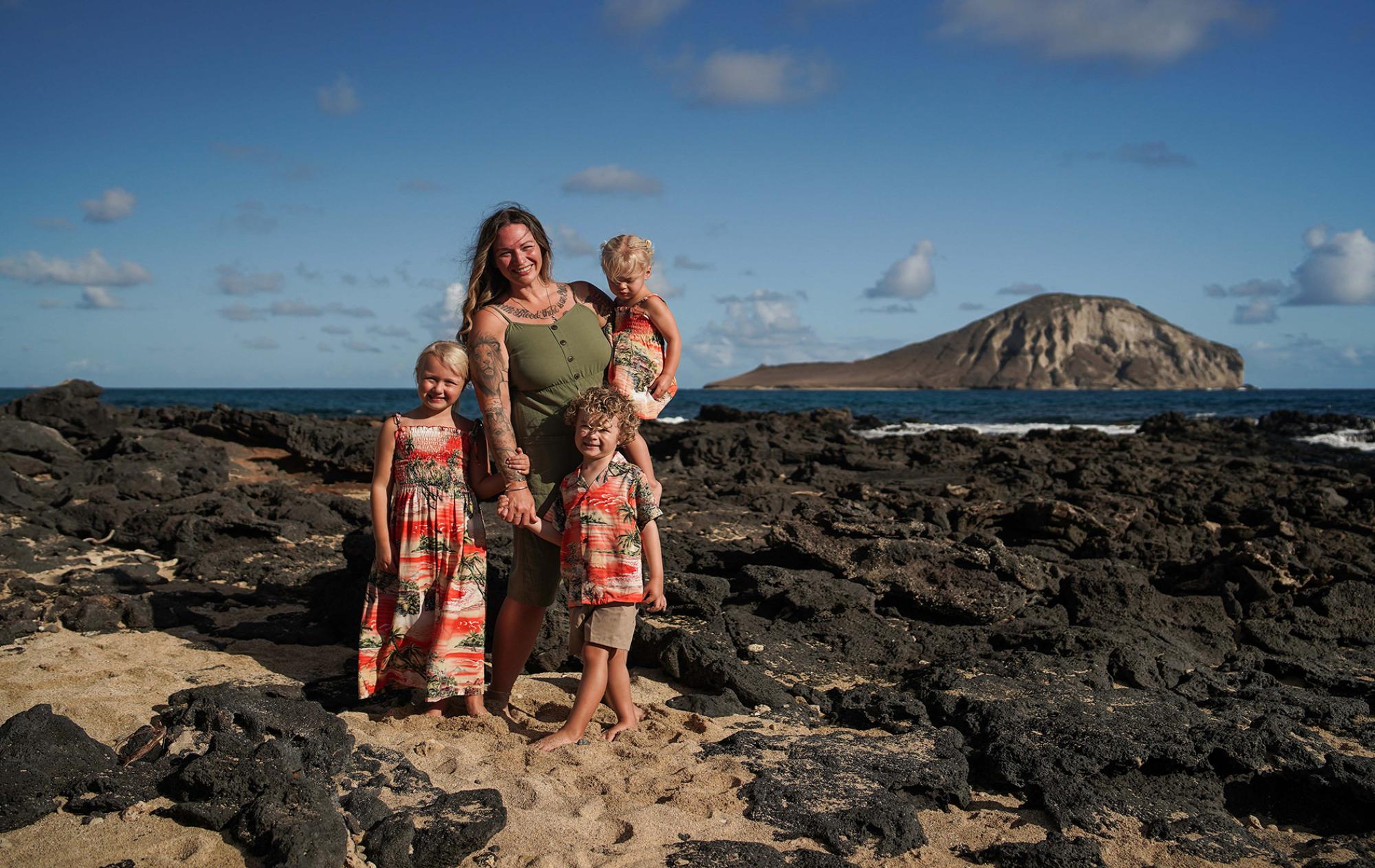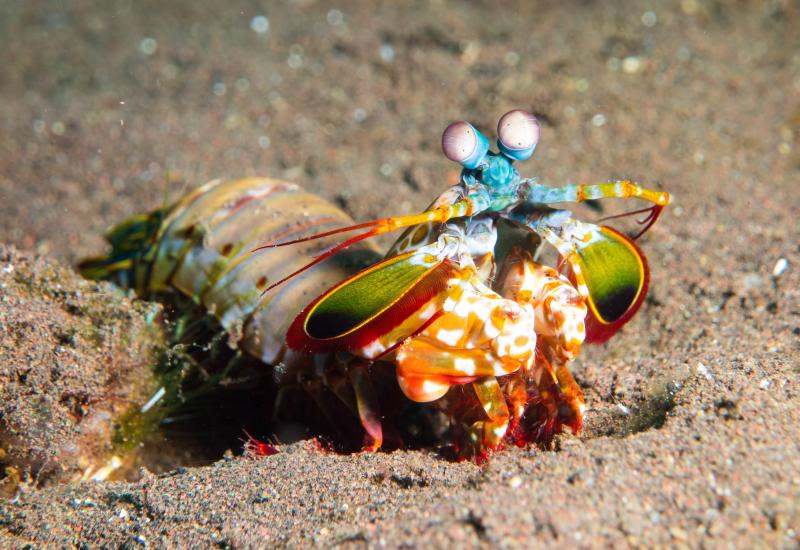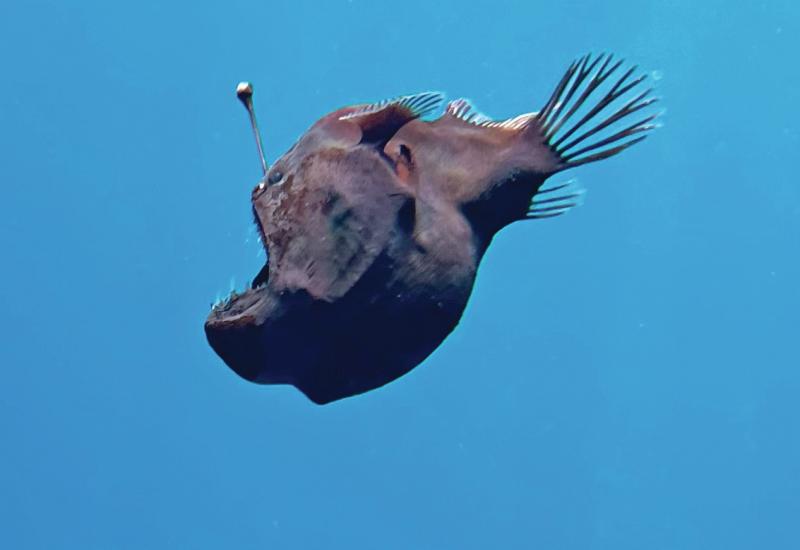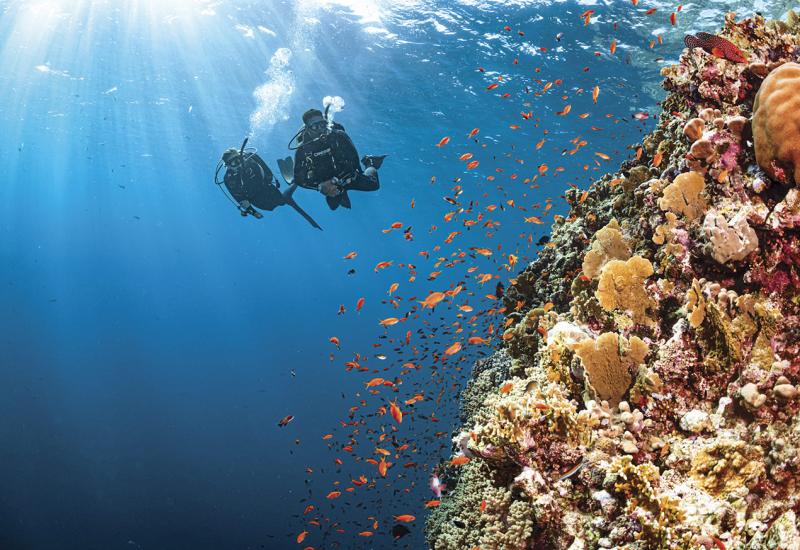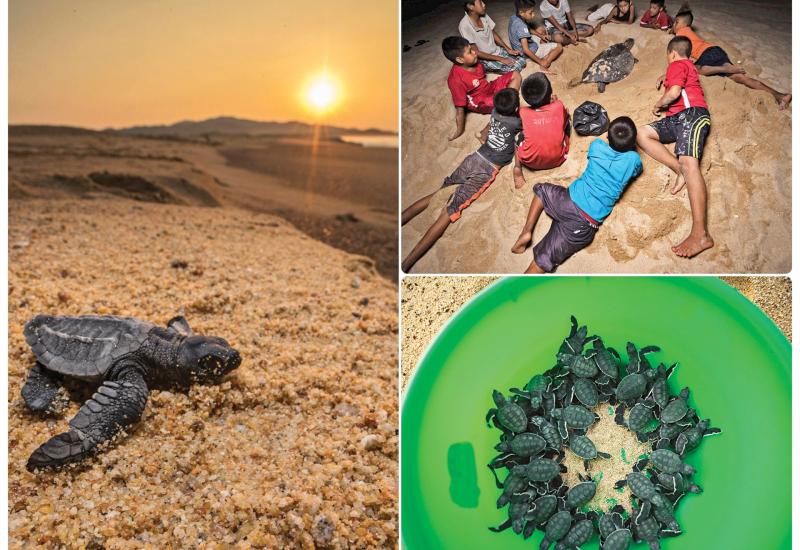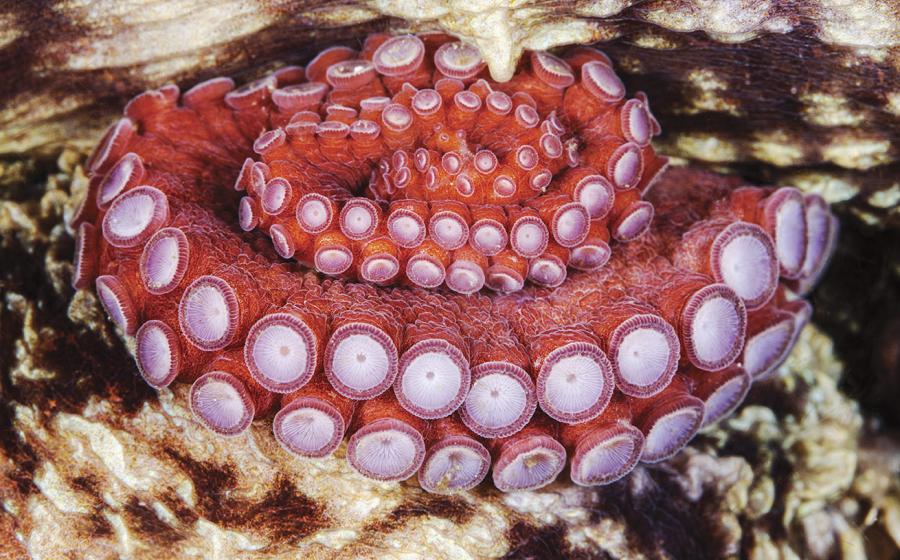A Navy Sailor Died Scuba Diving. Now His Widow Dives to Share His Story.
There is an exact spot in the Pacific Ocean Ashley Bugge dives as often as she can.
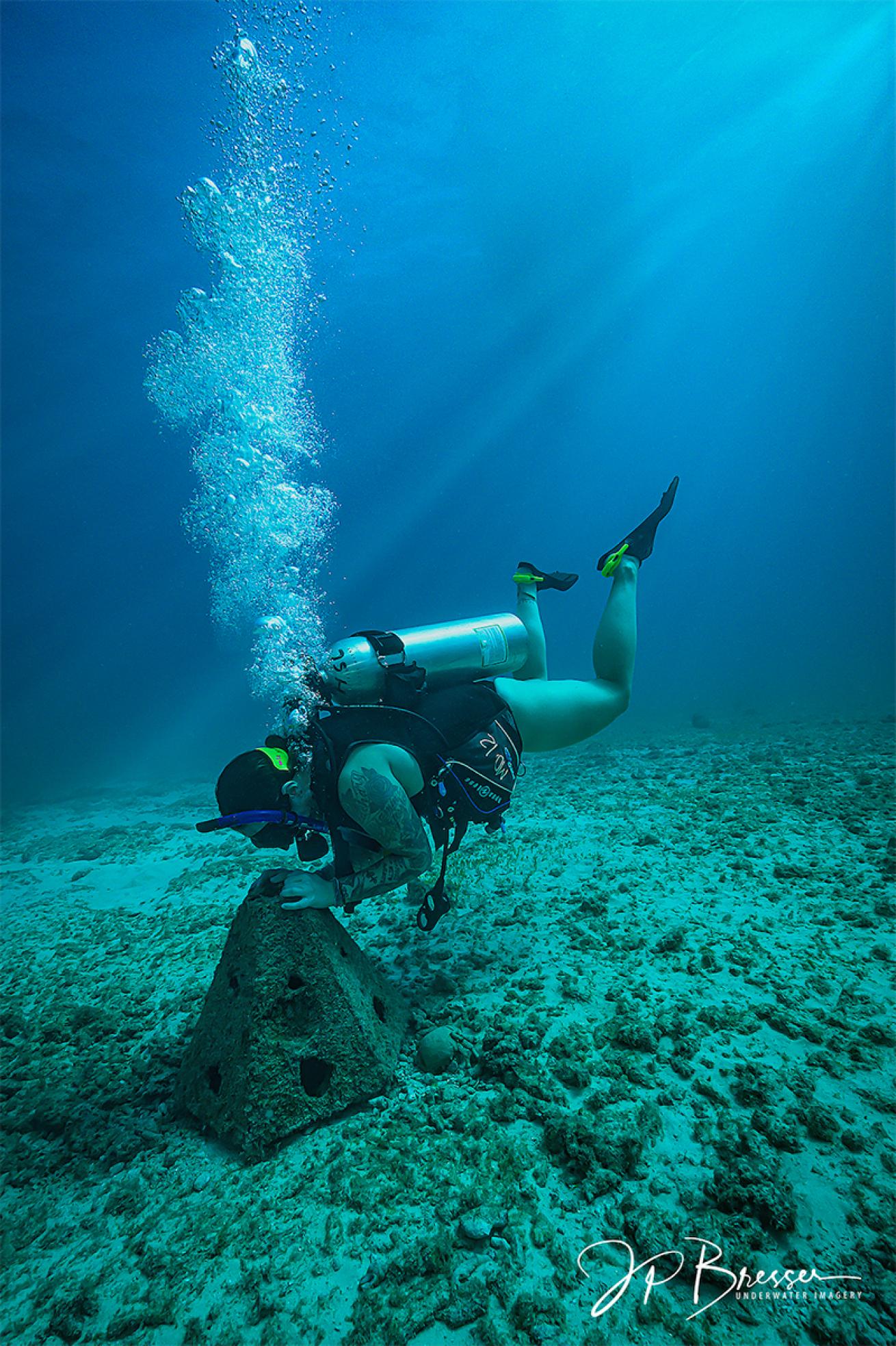
Courtesy ImageBugge visits her husband's final resting place.
Near Waikiki, this spot doesn’t stand out among Hawaiian waters to anyone else. The color is a can’t-be-copied blue, the sea life is playful and the temperature is pleasant, as Hawaiian waters tend to be. But when Bugge sinks near Kewalo, she isn’t just visiting the water, but a person: her husband, Brian Bugge.
His sailor-strong muscles, dark hair and “dashing good looks,” as Bugge says, are now eternally anchored to the ocean floor in a living reef memorial. Fish and other sea creatures have taken over, swimming and living in the habitat made from his cremate remains.
“Right here was the first place we ever dove,” she says. “Knowing that he took both his first and last breath underwater in this same area…” She glances off, for a moment under the ocean again with the love of her life. A second later, she is back on land, alone.
Wanderlust
Brian, an experienced scuba diver and 35-year-old officer in the U.S. Navy, was working towards certification on the Liberty rebreather in May 2018. He was eager to finish the professional course and get back to Bugge, then six months’ pregnant, and their two other children.
Though no one can be entirely sure, Bugge assumes Brian turned his rebreather oxygen off for the boat ride from Kewalo to the Sea Tiger shipwreck and forgot to turn it on before diving. One thing is heartbreakingly sure: within six minutes, Brian became hypoxic and sank to the sand. It had been his final rebreather class before graduation, made possible with GI funds.
“He could have guilt sometimes, like, ‘I’m spending too much time on the boats or deployments,’ but when he was home, he was home,” Bugge says. “He was the perfect balance of fun and adventure blended with career.”
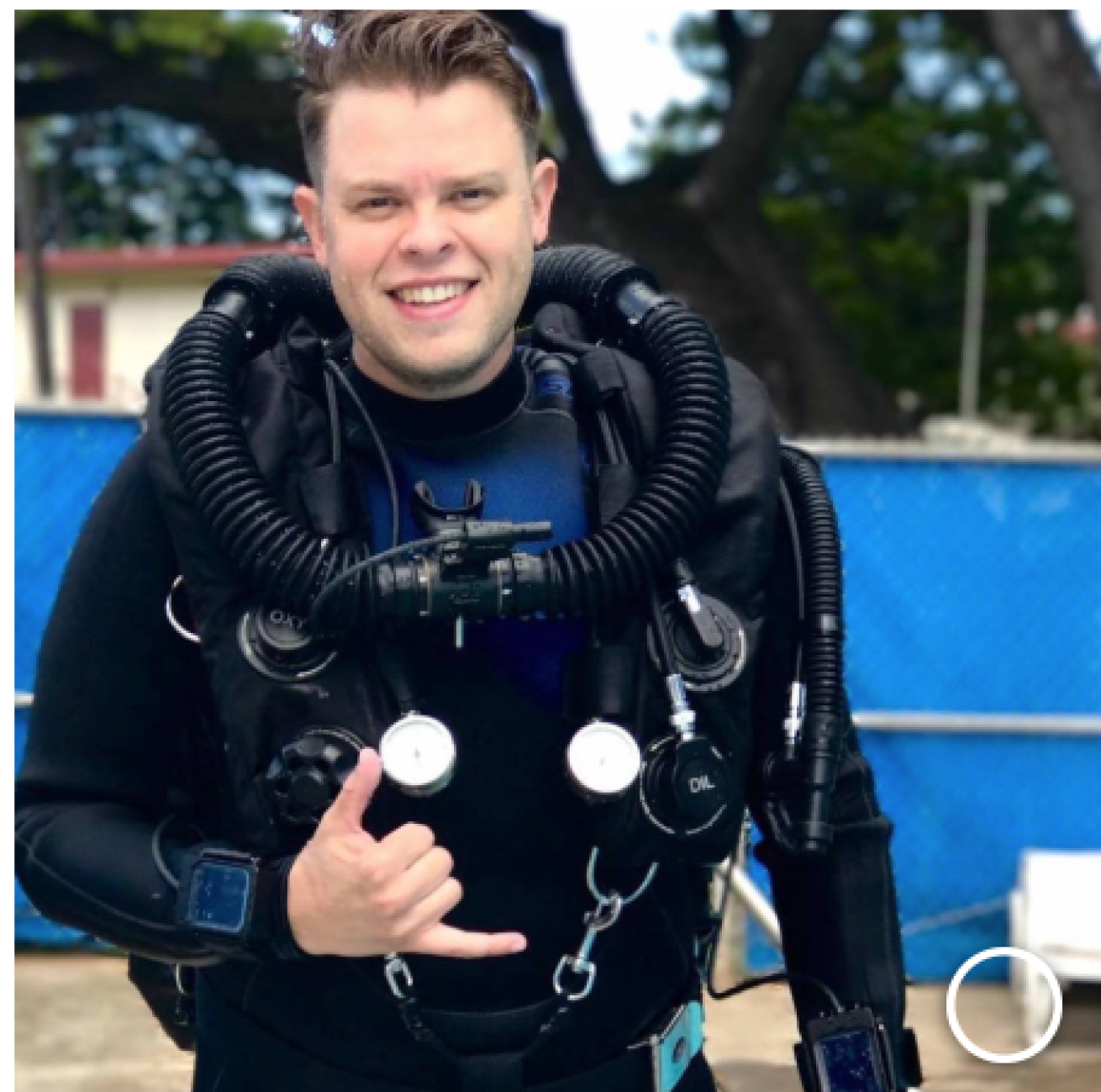
Courtesy ImageBrian Bugge
Brian demonstrated that energy repeatedly in both his Navy job and five-year marriage to Bugge, a fellow Pacific Northwesterner. It wasn’t just that the couple had been diving around the world together — Hawaii, Mexico, the Puget Sound, Australia, Fiji — since their scuba certifications in 2015. It was the way Brian chased each dream with intrinsic abandon that fascinated Ashley and others.
In 2017, national media outlets covered Brian’s three-week journey in his Morgan 36T sailboat from Washington, where he was stationed, to his new Navy assignment in Hawaii. Normally, when military members move across oceans, transportation companies handle getting all vehicles from Point A to B.
But Brian wasn’t normal.
“He was always involved in everything,” his wife explains. “He was never a bystander,” especially with the Stay Gold, his beloved boat.
Upon arrival, the Bugges loved everything about Hawaii. The couple went diving often in the Aloha State and elsewhere, watching manta rays, nurse sharks, octopus and whales while exploring caves and shipwrecks around the globe. It all felt so pure, “like opening up a shiny present and seeing the world through a child’s eyes,” Bugge remembers.
Brian soon wanted to master the rebreather, like Navy SEALS. “I feel like there’s two distinct types who dive: those like me who dive because it’s enjoyable, and those who like the technicality of it,” Bugge says. “I think the rebreather community is the second, and so was Brian.”
The After
Just months after Brian’s passing, Bugge gave birth to their second daughter back on the mainland. She would never dive again, she decided; she couldn’t stand the thought of her children losing their second parent to the water.
Yet, 364 days after Brian’s death, she pushed aside that strangling fear and dove near Kewalo, to that terrible and sacred patch of ocean floor. Alongside Brian’s dive buddies, she carefully set his living reef where it would stay forever.
“I get to put my hands on my husband in this weird way, literally touching his remains in the place he died, in this most special way possible,” Bugge says. “There’s no other place he’d rather be. Brian is literally part of this ecosystem, and it’s really beautiful for me.”
Since that May day, Bugge has channeled her grief into creation. She is the author of Always Coming Back Home: An Emotional Tale of Love, Adventure, Tragedy and Hope, while her kids helped her write A Hui Hou: Until We Meet Again for children. She has a podcast called “No Bucket List,” Brian’s motto, and started a scholarship fund for veterans to access dive training. She’s been diving 40 times in the past year alone.
She posted Brian’s accident report to a Facebook group devoted to scuba accidents. Thousands commented, including British filmmaker Gareth Lock. After a year of coordination, Bugge flew to Hawaii to film If Only, a documentary on the fatal flaws leading to Brian’s death, with him. Since its release, numerous dive schools have incorporated the film into training sessions, as well as businesses using it to study human error.
“It’s mind-blowing to know people are talking about my husband across the world,” Bugge says.
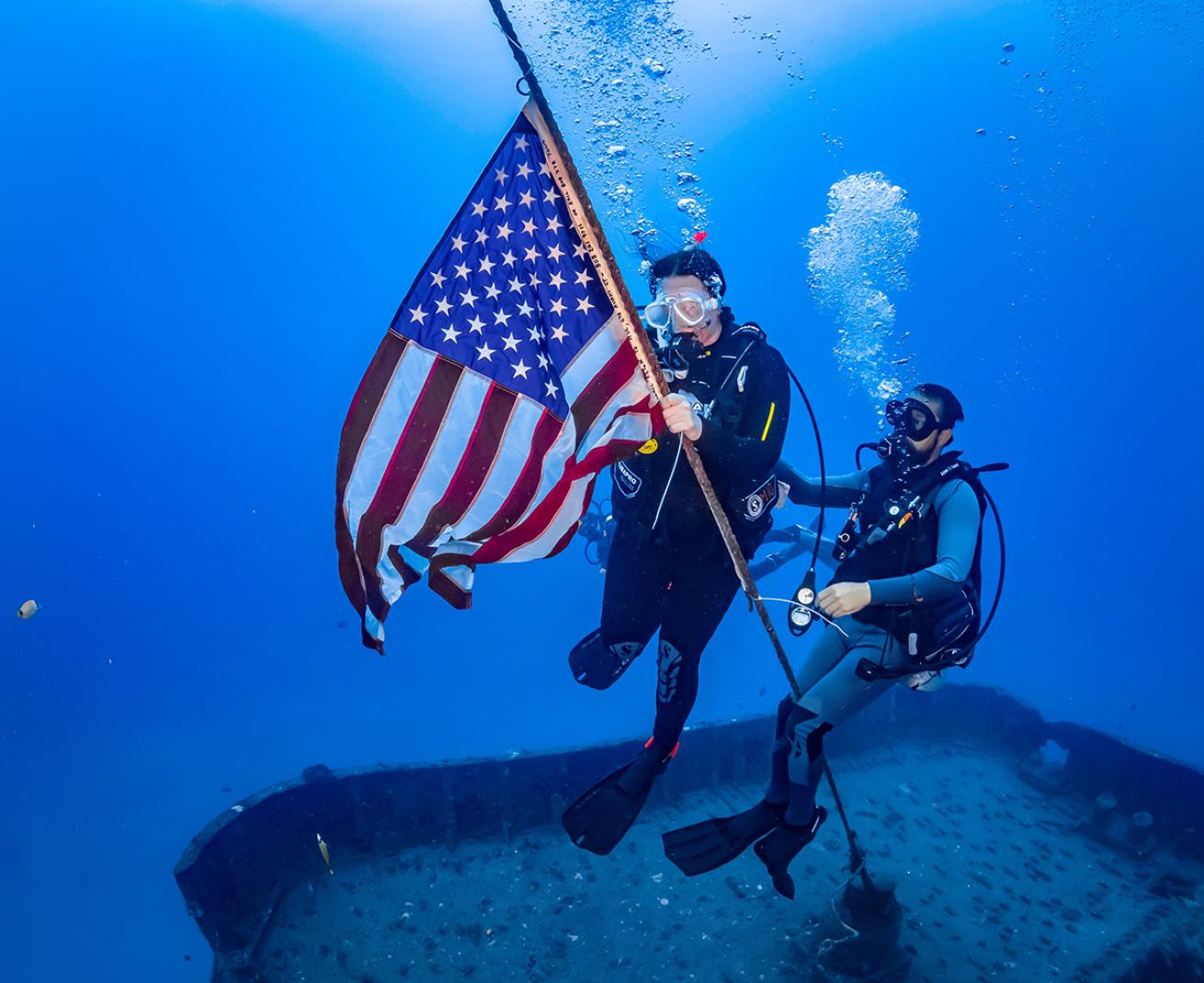
Chris KnightBugge places a U.S. flag on the stern of the Sea Tiger during a one-year memorial dive in Brian's memory. "We kept it down there while we did our memorial dive, and then took it off upon our assent to the surface. I still have it at home," she says.
As equally mind-bending is the profound effect Brian had on Alissa, his body tissues recipient. After learning his story, Alissa became a certified diver. She and Bugge, now friends, plan to dive to Brian’s reef together on the third anniversary of his accident.
Brian would be proud; Ashley knows that. The familiarity of the saltwater that once cradled them both is now different, though. It’s holding him forever, while she is merely a visitor.
“Trauma kind of shifts things, changes your perspective and priorities,” she says. “I belong in the water, but I also want to get home to my family.”
She gulps a deep breath and slowly breathes it out — for her, for her babies, and for their father.

